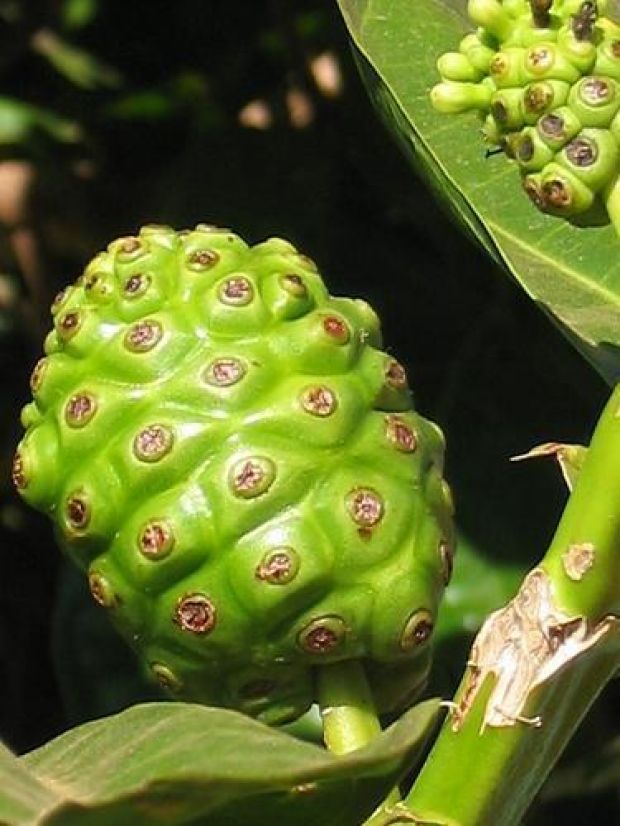During a quarter-century of studying forests, one of the most amazing plants that I have ever come across is the South Pacific noni or Morinda citrifolia.
This small blossoming shrub with its dark glossy, one-foot-long evergreen leaves is indigenous to Tahiti, southeastern Asia and Australia. It has been introduced into China, India, parts of Africa and the Americas.
About 1,500 years ago the Polynesians took noni seeds with them as they colonized the South Pacific Islands, including Hawaii.
The noni plant produces egg-shaped fruits with indented pit-marks. Its tasteless yellowish white skin becomes near transparent when the fruit ripens. The ripened pulp, on the other hand, smells of strong cheese and the extracted pulp juice is quite bitter.
The fruits contain reddish-brown seeds that float in the ocean and accounts for nonis’ widespread global distribution. Noni flourishes under harsh environmental conditions including the onslaught of salt, drought, sandy Australian soils, porous volcanic Hawaiian soils and the nutrient-poor limestone soils of Guam.
Noni fruit was an important food source for Australian, Burmese, Fijian and Samonian Aboriginals. The red dye from the bark and yellow dye from the roots were also used extensively by these peoples in clothing.
Noni roots, flowers, seeds, leaves, bark and fruits are used as medicine for a host of different maladies. Noni can be taken as a capsule, juice or as an extract and is also available in powder for pets.
Noni’s medicinal properties are believed to enhance the thyroid and thymus glands, which fend off infections.
People take noni by mouth for liver disease, diabetes, depression, high blood pressure and nausea, just to name a few conditions.
Noni’s fruit juice is taken for arthritis, headaches, menstrual difficulties and muscle aches, among others. Medicines have incorporated its leaves for swelling of the joints, rheumatic aches and stomachache.
This remarkable South Pacific plant packs a tremendous natural punch.
Reese Halter is a broadcaster, biologist and author of The Incomparable Honeybee. Visit his website for more reads.

